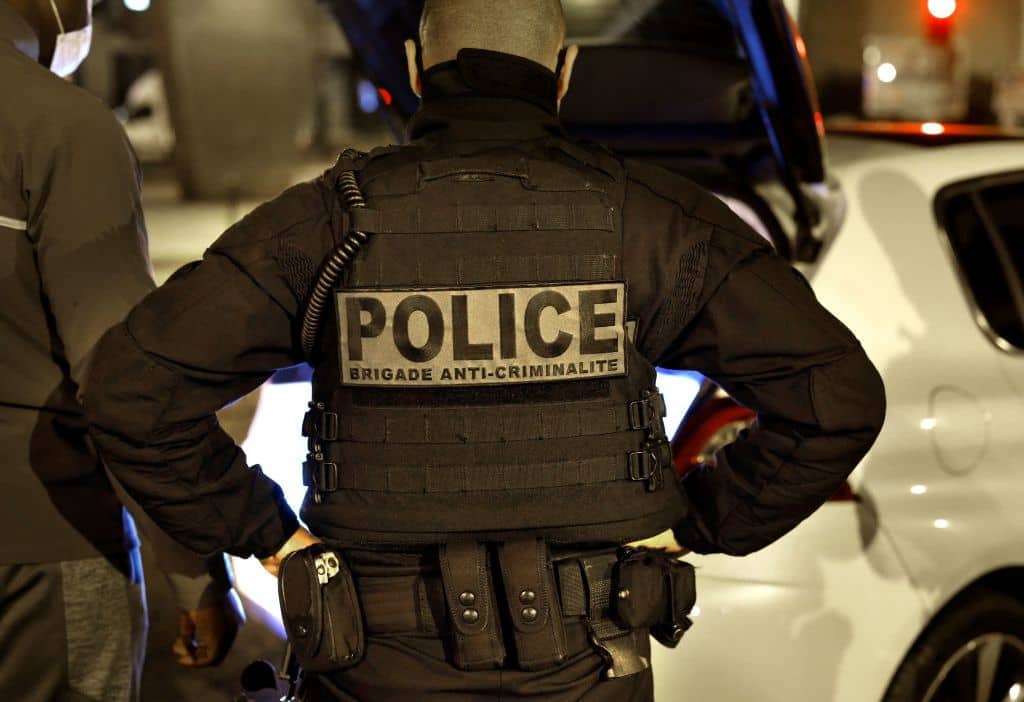Priti Patel wants the police to get back to basics and solve crime instead of parading their progressive credentials at every available opportunity. It’s about time: recorded crime in England and Wales is at a 20-year-old high. Villains have never had it so good. Just 5.6 per cent of offences reported to police resulted in anyone being charged or summonsed in 2021-22, a drop of ten per cent from 2014-2015.
The Home Secretary is said to support a paper by the Policy Exchange think tank that warns that the police’s persistence in espousing social justice causes is ‘hugely damaging’ to public confidence. There is a growing sense among the public that the police have thrown in the towel, at least when it comes to keeping the streets safe. In recent weeks, gangs of youths have run amok in London and Nottingham, so confident of evading justice that they don’t bother to mask their faces as they loot shops and terrorise the public.
In 2008, the Daily Mail reported that the public were losing trust in the police, as did the Times three years later; the difference between now and then is that a decade ago the public’s discontent was solely down to police ineffectiveness. Now it is ineffectiveness allied to an ideology that alienates large swathes of the public.
Half a century ago the ranks of the police were typically filled by no-nonsense ex-servicemen; now many of them are graduates, encouraged to enter the service from university by a change of policy from the College of Policing in 2016. With so many university professors identifying as left-wing is it any wonder police officers cheer for Palestine and fail to crack down more on climate protestors who are disrupting traffic?
Is it any surprise that the public have never held such an unfavourable view of the police?
And is it any surprise that the public have never held such an unfavourable view of the police? A YouGov survey last October revealed that Britons are now more ‘unconfident than confident in police to deal with crime’.
Two years ago on Coffee House I described the British police as ‘the paramilitary wing of the Guardian’, which with hindsight might have been a little unfair on the newspaper. As far as I’m aware the editor of the Guardian doesn’t spend her time skateboarding with Extinction Rebellion or dancing the Macarena at Lincoln Pride.
I then drew an unfavourable comparison between British bobbies and their French counterparts, one which rings true today as it did in 2020. The police in France still retain the respect of the majority of the public they serve. A poll in June found that 84 per cent of Frenchmen and women have confidence in the police, a rise of 5 per cent on the previous year. These people watch the TV and read the papers, and are aware of the violence to which the police are subjected on a daily basis.
This summer, for example, three policemen were set on by a mob in Lyon as they tried to make an arrest. Last week, a policeman was run over. He and his colleagues opened fire and shot dead the two occupants.
The incident inflamed many on the left, who make up much of the 16 per cent of the French public who say they have little or no confidence in the police. In June this year police in Paris opened fire on a vehicle that drove at them as they attempted to speak to the driver. He was wounded and his female passenger killed. In response Jean-Luc Mélenchon, the leader of the far-left La France Insoumise, accused the police of an abuse of power and tweeted that ‘the police kill’.
After the death of the two men in Lyon, La France Insoumise said they wanted ‘to restore a police force that contributes to public peace rather than exacerbating tensions with the population. It is nothing more or less than having peacekeepers rather than police’.
That is a quaint notion, but one that ignores the reality of an increasingly violent Republic. Between 2004 and 2019 the number of police injured in the line of duty rose from 3,842 to 6,760 per year; in 2021, there were 26,320 incidents of drivers refusing to submit to a police vehicle check.
The police in France do occasionally overstep the mark, as Liverpool football supporters discovered in May at the Champions League final in Paris. Overall, however, they do an admirable job in difficult circumstances.
What really irks the left in France is that while the media, the arts and academia are largely under their control, the police remain out of their grasp. At the 2017 presidential election, just nine per cent of police officers surveyed described themselves as left wing, compared to 32 per cent as centrists and 57 per cent who identified as right wing.
There are many rank and file police officers in Britain who bravely go about their duty, but they are being let down by their progressive superiors who appear to believe the public approve of seeing burly male officers tottering down the street in red high heels. In France, the police believe progress is best achieved by maintaining law and order.







Comments